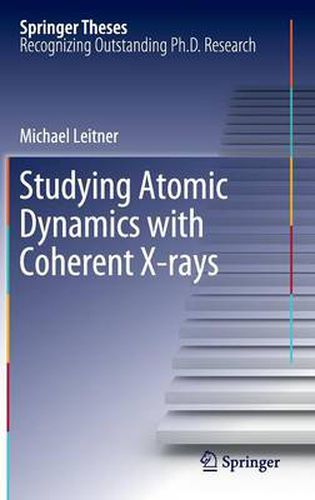Readings Newsletter
Become a Readings Member to make your shopping experience even easier.
Sign in or sign up for free!
You’re not far away from qualifying for FREE standard shipping within Australia
You’ve qualified for FREE standard shipping within Australia
The cart is loading…






This title is printed to order. This book may have been self-published. If so, we cannot guarantee the quality of the content. In the main most books will have gone through the editing process however some may not. We therefore suggest that you be aware of this before ordering this book. If in doubt check either the author or publisher’s details as we are unable to accept any returns unless they are faulty. Please contact us if you have any questions.
Diffusion in solids at moderate temperatures is a well-known phenomenon. However, direct experimental evidence about the responsible atomic-scale mechanisms has been scarce, due to difficulties in probing the relevant length- and time-scales. The present thesis deals with the application of X-ray Photon Correlation Spectroscopy (XPCS) for answering such questions. This is an established method for the study of slow dynamics on length-scales of a few nanometres. The scattered intensity in the diffuse regime, i.e. corresponding to atomic distances, is very low, however, and so it has so far been considered impossible to use XPCS for this problem.
Threefold progress is reported in this work: It proposes a number of systems selected for high diffuse intensity, it optimizes the photon detection and data evaluation procedures, and it establishes theoretical models for interpretating the results. Together these advances allowed the first successful atomic-scale XPCS experiment, which elucidated the role of preferred configurations for atomic jumps in a copper-gold alloy.
The growth in available coherent X-ray intensity together with next-generation X-ray sources will open up a wide field of application for this new method.
$9.00 standard shipping within Australia
FREE standard shipping within Australia for orders over $100.00
Express & International shipping calculated at checkout
Stock availability can be subject to change without notice. We recommend calling the shop or contacting our online team to check availability of low stock items. Please see our Shopping Online page for more details.
This title is printed to order. This book may have been self-published. If so, we cannot guarantee the quality of the content. In the main most books will have gone through the editing process however some may not. We therefore suggest that you be aware of this before ordering this book. If in doubt check either the author or publisher’s details as we are unable to accept any returns unless they are faulty. Please contact us if you have any questions.
Diffusion in solids at moderate temperatures is a well-known phenomenon. However, direct experimental evidence about the responsible atomic-scale mechanisms has been scarce, due to difficulties in probing the relevant length- and time-scales. The present thesis deals with the application of X-ray Photon Correlation Spectroscopy (XPCS) for answering such questions. This is an established method for the study of slow dynamics on length-scales of a few nanometres. The scattered intensity in the diffuse regime, i.e. corresponding to atomic distances, is very low, however, and so it has so far been considered impossible to use XPCS for this problem.
Threefold progress is reported in this work: It proposes a number of systems selected for high diffuse intensity, it optimizes the photon detection and data evaluation procedures, and it establishes theoretical models for interpretating the results. Together these advances allowed the first successful atomic-scale XPCS experiment, which elucidated the role of preferred configurations for atomic jumps in a copper-gold alloy.
The growth in available coherent X-ray intensity together with next-generation X-ray sources will open up a wide field of application for this new method.